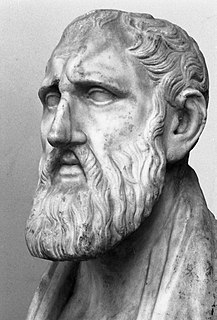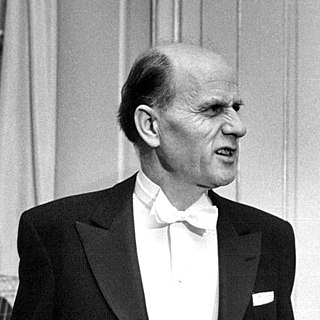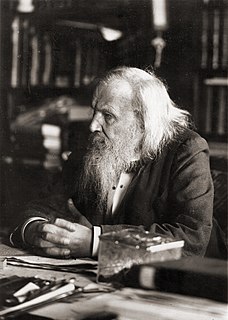A Quote by Zeno of Citium
All things are parts of one single system, which is called nature; the individual life is good when it is in harmony with nature.
Quote Topics
Related Quotes
What is God-given is called nature; to follow nature is called Tao (the Way); to cultivate the way is called culture. Before joy, anger, sadness and happiness are expressed, they are called the inner self; when they are expressed to the proper degree, they are called harmony. The inner self is the correct foundation of the world, and the harmony is the illustrious Way. When a man has achieved the inner self and harmony, the heaven and earth are orderly and the myriad of things are nourished and grow thereby.
Nature has but one plan of operation, invariably the same in the smallest things as well as in the largest, and so often do we see the smallest masses selected for use in Nature, that even enormous ones are built up solely by fitting these together. Indeed, all Nature's efforts are devoted to uniting the smallest parts of our bodies in such a way that all things whatsoever, however diverse they may be, which coalesce in the structure of living things construct the parts by means of a sort of compendium.
Nature is a good teacher; he who can read the nature well, he can learn sagacious things belong to life from it. Once you stepped in the nature, your philosophical education starts. A black vulture teaches you many things; a bear teaches you many things; a bird making its nest and a rosehip which resists being frozen, they teach you many things!
Nature is the system of laws established by the Creator for the existence of things and for the succession of creatures. Nature is not a thing, because this thing would be everything. Nature is not a creature, because this creature would be God. But one can consider it as an immense vital power, which encompasses all, which animates all, and which, subordinated to the power of the first Being, has begun to act only by his order, and still acts only by his concourse or consent ... Time, space and matter are its means, the universe its object, motion and life its goal.
Man is the only animal who does not feel at home in nature, who can feel evicted from paradise, the only animal for whom his own existence is a problem that he has to solve and from which he cannot escape. He cannot go back to the prehuman state of harmony with nature, and he does not know where he will arrive if he goes forward. Man's existential contradiction results in a state of constant disequilibrium. This disequilibrium distinguishes him from the animal, which lives, as it were, in harmony with nature.
These various habits of thought, or habitual expressions of life, are all phases of the single life sequence of the individual; therefore a habit formed in response to a given stimulus will necessarily affect the character of the response made to other stimuli. A modification of human nature at any one point is a modification of human nature as a whole.
Nothing is more human than for man to desire naturally things impossible to his nature. It is, indeed, the property of a nature which is not closed up in matter like the nature of physical things, but which is intellectual or infinitized by the spirit. It is the property of a metaphysical nature. Such desires reach for the infinite, because the intellect thirsts for being and being is infinite.
Again, if the world is destroyed, it must needs either be destroyed according to nature or against nature. Against nature is impossible, for that which is against nature is not stronger than nature. If according to nature, there must be another nature which changes the nature of the world: which does not appear.
The basis of artistic creation is not what is, but what might be; not the real, but the possible. Artists create according to the same principles as nature, but they apply them to individual entities, while nature, to use a Goethean expression, thinks nothing of individual things. She is always building and destroying, because she wants to achieve perfection, not in the individual thing, but in the whole.
In the course of evolution nature has gone to endless trouble to see that every individual is unlike every other individual....Physically and mentally, each one of us is unique. Any culture which, in the interests of efficiency or in the name of some political or religious dogma, seeks to standardize the human individual, commits an outrage against man's biological nature.
































